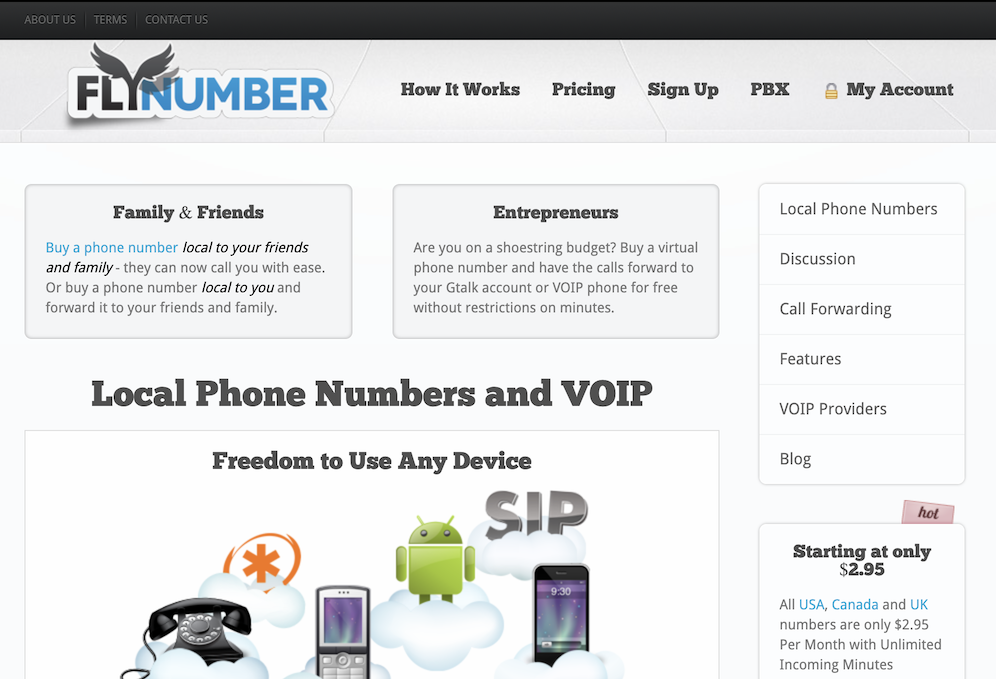About Us
Wasn't the internet supposed to make phone calls inexpensive?
That's been our mission from the start—offering affordable phone service without hidden fees.
Get local or toll-free numbers for your business or personal use.

Humble Beginnings

FlyNumber was founded in 2011 out of Brooklyn, New York.
We started off as a simple "call forwarding" service that has since evolved into a full VoIP services company.
Our phone system was first introduced circa 2013.
Our founder came from a family business that ran local mom-and-pop supermarkets out of New York City. Keeping costs down and passing savings along to the customer is our middle name.
The founder is native New Yorker Nader Jaber, specifically from Queens, NY - "the most linguistically and ethnically diverse place on Earth"[1].
Our Mission

- To bring high-quality, low-cost phone services via the internet to the masses.
- First, some background: Before the internet became mainstream, businesses needed an expensive on-premises phone system (PBX). Each desktop phone or fax machine would act as an "extension" connected to central hardware that routed calls. This setup often required a technician to manage. [2]
- While costs have decreased since the '80s, there's a trend where businesses are charged "per seat" or per user. We've seen cases where this can be as high as $40 per user! A startup with just three employees could be paying upwards of $150 a month for a phone number to receive calls. In our view, this boils down to company "bloat"—some VoIP companies have created unnecessary overhead, leading to higher costs. While some providers offer features that may be needed, we take a different approach.
- Fast forward to today: That same on-premises PBX can now live in the "cloud," managed by virtual servers at a significantly reduced cost. The system is typically managed via a web-based UI, making it user-friendly, so business owners can update settings as needed.
- We take it a step further. We don’t charge per user. Instead, our service is based on charging per phone number. Have five employees who all need to receive calls from the same number? It’s a flat charge of $14.95 per month for our cloud PBX-phone system, which applies to the entire account. Need more phone numbers? They start as low as $2.95 for all USA, U.K., and Canada numbers.
- You don’t have to be a business to use us. Many of our users use FlyNumber for personal reasons. You also don’t need to use our cloud PBX-phone system at all. You can use your own VoIP solution or forward the FlyNumber directly to a VoIP address or any regular phone number in the world.
- Conclusion: Despite how telecom has evolved over the years, phone numbers remain crucial. Whether it’s a new website that needs a contact number or an individual needing a local phone number for their resume, FlyNumber provides flexible options. Buy phone numbers in bulk or just one, for a month or a decade—it’s all up to you, and it won’t break the bank.
